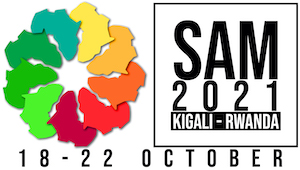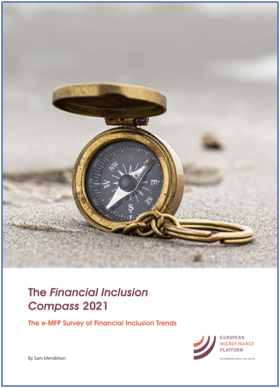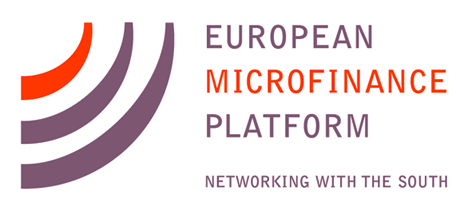Despite the pandemic,  the European Microfinance Platform (e-MFP) once again presents one of its flagship activities, European Microfinance Week (EMW), online this November. While the detailed agenda has not yet been released, it will include the presentation of the EUR 100,000 European Microfinance Award, as always. Over three days, last year’s EMW included 130 speakers reaching 500 attendees via the internet. Registrations fees vary from EUR 40 to EUR 200. More details appear at https://registration.european-microfinance-week.eu/website/27793/.
the European Microfinance Platform (e-MFP) once again presents one of its flagship activities, European Microfinance Week (EMW), online this November. While the detailed agenda has not yet been released, it will include the presentation of the EUR 100,000 European Microfinance Award, as always. Over three days, last year’s EMW included 130 speakers reaching 500 attendees via the internet. Registrations fees vary from EUR 40 to EUR 200. More details appear at https://registration.european-microfinance-week.eu/website/27793/.
This notice is part of a sponsored series on EMW, the next iteration of which will occur online from November 17 through November 19, 2021. This event is held annually by e-MFP, a Luxembourg-based network with approximately 130 members. MicroCapital has been engaged to cover the event each year since 2012.
Additional Resources
European Microfinance Platform (e-MFP) information on European Microfinance Week 2020
http://www.e-mfp.eu/european-microfinance-week-2020
MicroCapital coverage since 2012 of European Microfinance Week, including each European Microfinance Award
https://www.microcapital.org/category/european-microfinance-week/

 year’s SAM (Semaine Africaine de la Microfinance) includes five days of conference sessions, an investors’ fair, an “Innovators’ Village,” research presentations, training sessions and workshops under the theme “Resilience of the African Inclusive Finance Sector.” The two-day conference portion of SAM includes sessions on topics such as how the COVID-19 pandemic has affected efforts to meet the UN Sustainable Development Goals, financing agricultural value chains, risk management, serving youth, digital infrastructure and post-crisis reconstruction. The other days of SAM include workshops on topics such as social performance,
year’s SAM (Semaine Africaine de la Microfinance) includes five days of conference sessions, an investors’ fair, an “Innovators’ Village,” research presentations, training sessions and workshops under the theme “Resilience of the African Inclusive Finance Sector.” The two-day conference portion of SAM includes sessions on topics such as how the COVID-19 pandemic has affected efforts to meet the UN Sustainable Development Goals, financing agricultural value chains, risk management, serving youth, digital infrastructure and post-crisis reconstruction. The other days of SAM include workshops on topics such as social performance,  MicroCapital: How will the theme resilience be addressed during the SAM 2021?
MicroCapital: How will the theme resilience be addressed during the SAM 2021?
